Cleaning the coffee machine correctly and frequently is a fundamental step for serving a top quality espresso.
This is not just a question of hygiene: inadequate or poor cleaning can cause malfunction of the equipment and, consequently, the extraction of a poorer quality coffee.
The coffee actually releases oils and fats which are deposited on the elements of the machine and tend to become rancid and burn due to the high temperatures, thus damaging the flavor of the espresso.
So, let’s discover how to carry out effective cleaning of this equipment and how often you should be repeating this operation.
Cleaning the coffee machine: a daily activity
Do you want to give your customers perfect espresso coffees?
Then you should clean the coffee machine every day, carrying out a cleaning cycle with specific detergents.
Let’s take a look at what you should be doing every day, at close of business, in order to keep your machine perfectly clean.
Cleaning the coffee machine: the dispenser unit
Every day it is necessary to clean the dispenser unit, so baskets, diffusers, filters and portafilters, with the appropriate detergent.
Here is the procedure for treating these elements in the correct way:
- Remove the portafilters from the dispenser, then dismantle the filters, the baskets and the diffusers.
- Now focus on cleaning the dispenser unit with the procedure of the blind filter. Place the blind filter (a filter without holes) inside the portafilter, and fill it with a small quantity of specific detergent. Attach the portafilter to the machine and switch on the machine 5 times, for 10 seconds each time; with this procedure you will be able to clean the circuito and elettrovalvole.
- Once you have completed the 5 runs, detach the portafilter and rinse the blind filter under the tap with warm water, then re-attach the portafilter to the machine to proceed with the rinsing phase, for which you simply need to repeat the procedure described in the previous point without using the detergent.
- Immerse filters, portafilters, baskets and diffusers in a container of boiling water to which you will add some specific detergent: leave them in this solution for 20 minutes leaving the handles of the dei portafiltri out of the liquid.
- Now all you have to do is rinse the filters, portafilters, baskets and diffusers under hot tap water. Dry them and re-attach the diffusers and the to the machine, and the filters in the portafilters, then re-attach these to the dispenser unit without tightening too much so as not to damage the seals. The cleaning of the dispenser unit is completed.
As well as cleaning the machine as described above, we also recommend two other good habits to adopt during the working day.
Between one espresso and another, for example, is a good idea to remove all coffee residues from the filter from the previous extraction.
In order to avoid the remaining coffee residues damaging the flavor of the subsequent espresso coffees, it is not sufficient just to hit the portafilter against the drawer to remove the coffee grounds, it is necessary to clean the filter carefully with the help of a cloth or a brush.
Furthermore, before you make another coffee, with the portafilter detached we suggest letting a small amount of water out in order to clean the baskets.
Cleaning the steaming arm
The process of foaming the milk can create crusting both inside and outside the steaming arm; so, after every use it is important to clean it with a specific cloth and purge before and after every foaming cycle.
But this alone is not enough to eliminate all the residues, in order to avoid the proliferation of bacteria and improve the quality of the steam, every day it is necessary to treat this instrument with a special detergent. Let’s look at the steps you have to follow:
- Immerse the steaming arm in a container holding cold water and a suitable detergent.
- Open and close the steam valve 7-10 times: every time it is closed, the steaming arm will draw up the cleaning solution inside.
- At this point you must rinse the steaming arm; to do this just repeat the previous steps using clean cold water without any detergent.
Cup-holder tray and cup heater
After every espresso it is a good habit to use a damp cloth to clean the drip tray, to remove any drips of coffee that could dirty the bottoms of the cups.
Also at the end of the day, of course, it is a good idea to dedicate some time to cleaning this part of the machine, rinsing the grid and the tray under running water to eliminate all residues.
And don’t forget the heated cup tray, located on the top of the machine, which should be cleaned twice a month with a suitable anti-grease spray.
Cleaning the coffee machine: careful maintenance of the grinder
Besides the coffee machine, one piece of equipment which should be well looked-after is the grinder, which requires very careful cleaning.
The cylinder containing the beans, for example, should be cleaned twice a week (actually, ideally it should be done every time the bag of coffee beans is changed ) since oils and fats can accumulate inside.
To do this, simply clean it with a cloth and a sanitizing spray which, being highly volatile, does not leave any smell on the surfaces.
Also the doser, the part which contains the ground coffee, should be emptied and cleaned inside, both with a brush and also a cloth.
Finally, don’t forget to dedicate some time to cleaning the grinders: at least once a week, we recommend cleaning them with products specially designed to remove coffee residues which, besides becoming rancid, can cause variations in the granulometry of the coffee powder, an aspect which can influence the quality of the espresso.
Did you know about these techniques for cleaning the coffee machine?
To find out more, you can refer to the consulting service and assistance which Filicori Zecchini offers to all its own clients.
 Europe
Europe



